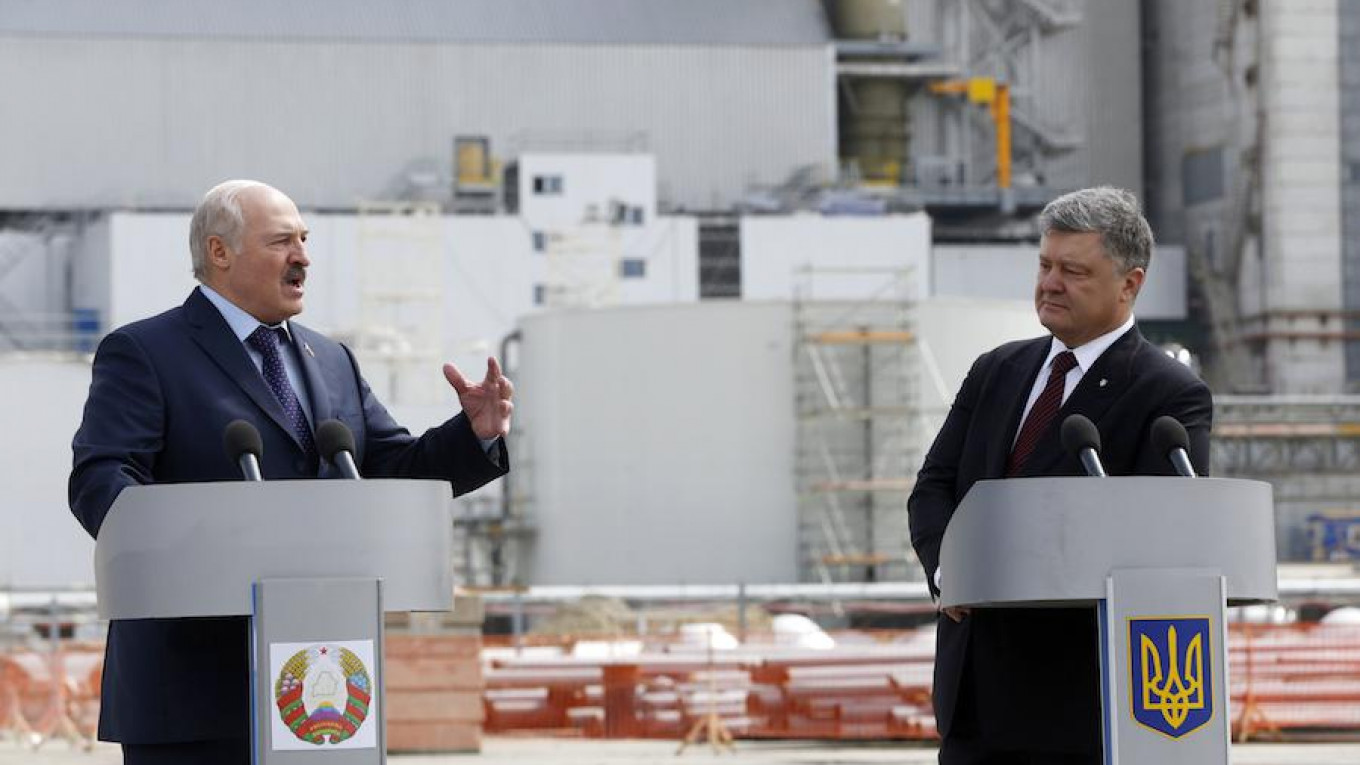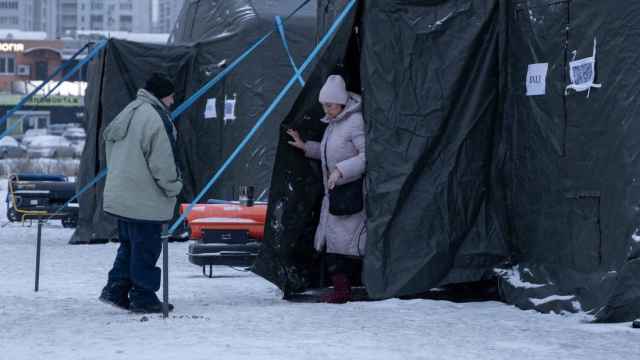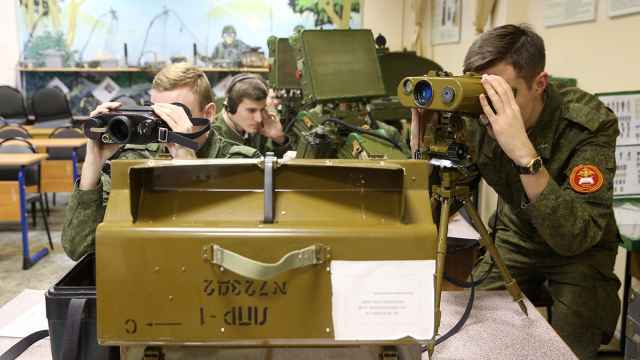President Petro Poroshenko has declared the border between Ukraine and Belarus an “axis of good and friendship,” as Moscow appears to lose ever more control over its Soviet-era satellites.
“No one will ever be able to drag Belarus into a war with Ukraine,” Poroshenko said Wednesday at an event to commemorate the 31st anniversary of the Chernobyl nuclear disaster, attended by both the Ukrainian and Belarussian leaders. “The peace-loving people of Belarus and its experienced and honorable president [Alexander] Lukashenko won't allow it.”
“The line Kiev-Minsk is an axis of
goodness, friendship and peace,” he said.
The statement appears to suggest a budding alliance between the two countries as they have moved away from Moscow following the annexation of Crimea.
Moscow's relations with Ukraine plummeted after Russia annexed the peninsula in March 2014, and its rapport with Belarus' long-time ruler Lukashenko — a traditional Putin ally — had similarly cooled.
Lukashenko also reassured the crowd of his good intentions towards Ukraine.
“[Poroshenko] and all Ukrainians know our position — peace and only peace. Ukrainians were never strangers to Belarussians," he said. "Whether or not people like it, the Ukrainian and Belarussian nations are intertwined. We always lived together […] No one can divide us.”
A Message from The Moscow Times:
Dear readers,
We are facing unprecedented challenges. Russia's Prosecutor General's Office has designated The Moscow Times as an "undesirable" organization, criminalizing our work and putting our staff at risk of prosecution. This follows our earlier unjust labeling as a "foreign agent."
These actions are direct attempts to silence independent journalism in Russia. The authorities claim our work "discredits the decisions of the Russian leadership." We see things differently: we strive to provide accurate, unbiased reporting on Russia.
We, the journalists of The Moscow Times, refuse to be silenced. But to continue our work, we need your help.
Your support, no matter how small, makes a world of difference. If you can, please support us monthly starting from just $2. It's quick to set up, and every contribution makes a significant impact.
By supporting The Moscow Times, you're defending open, independent journalism in the face of repression. Thank you for standing with us.
Remind me later.






